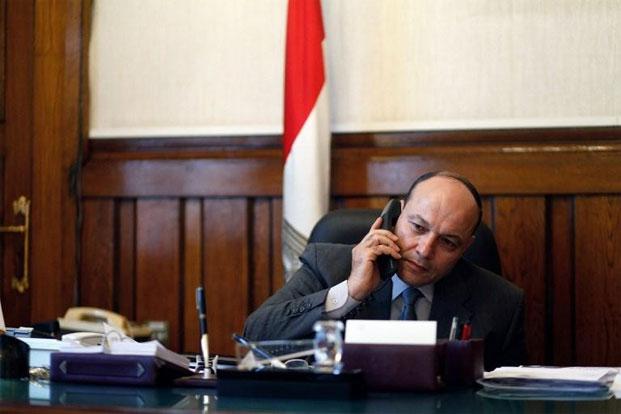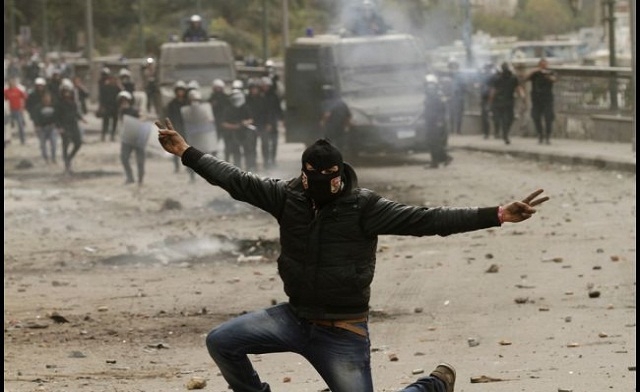
(AFP Photo)
Citizens are empowered by law to arrest those who vandalise public and private property, block roads, and prevent public officials from carrying out their duties among other crimes, the public prosecution said.
In a statement given on Sunday by Councillor Hussein Yassin, head of the prosecutor general’s technical office, said that in response to recent violence the prosecution would like to remind citizens that these are all crimes which do not require a judicial warrant for officers to make arrests.
“These crimes entitle any state officer with arrest powers to arrest the perpetrators without the need for a judicial warrant from a judge or the prosecution,” Yassin said. Police officers and military personnel both currently have arrest powers.
Furthermore certain other crimes, including vandalism, blocking traffic, prevention of public officials from carrying out duties, forcefully closing state buildings, and spreading fear within citizens, allow citizens to arrest and hand perpetrators over to the police or military. The prosecution urged citizens to take such actions.
“There are three ways in which one could be arrested for a crime without warrant: either the officer with arrest powers catches the suspect in the act, sees them with traces or evidence of committing the crime, or if the public catches them committing the crime and hands them over,” lawyer Ahmed Ezzat told Daily News Egypt.
Ezzat, who heads the legal unit at the Association for Freedom of Thought and Expression, explained that Article 30 of the Criminal Proceedings Law allows citizens to arrest wrongdoers in certain cases.
“The problem is that the definition of this procedure is too vague. It could easily be used to quell dissent and peaceful protesting. Things like blocking traffic are a result of a legislative vacuum since the state has not allocated places of protest for the public,” said Ezzat.
He added that there is a legal principle that if law does not properly regulate something, the state should align with the side of freedom until a proper law is legislated.
“The default in [unregulated] things is allowance, not banning. And the fact that these actions listed by the prosecution are crimes goes against the principles of freedom of expression and association,” Ezzat said.

